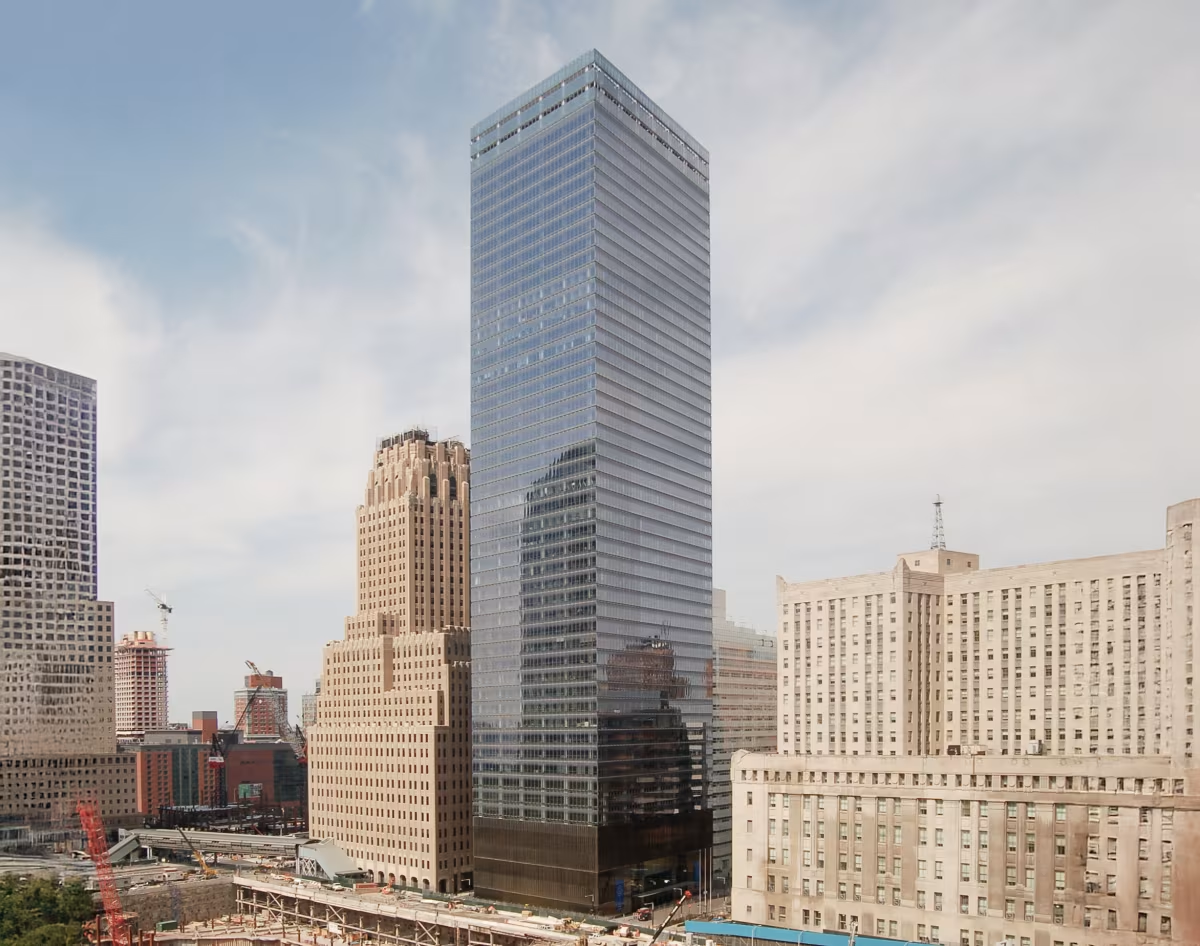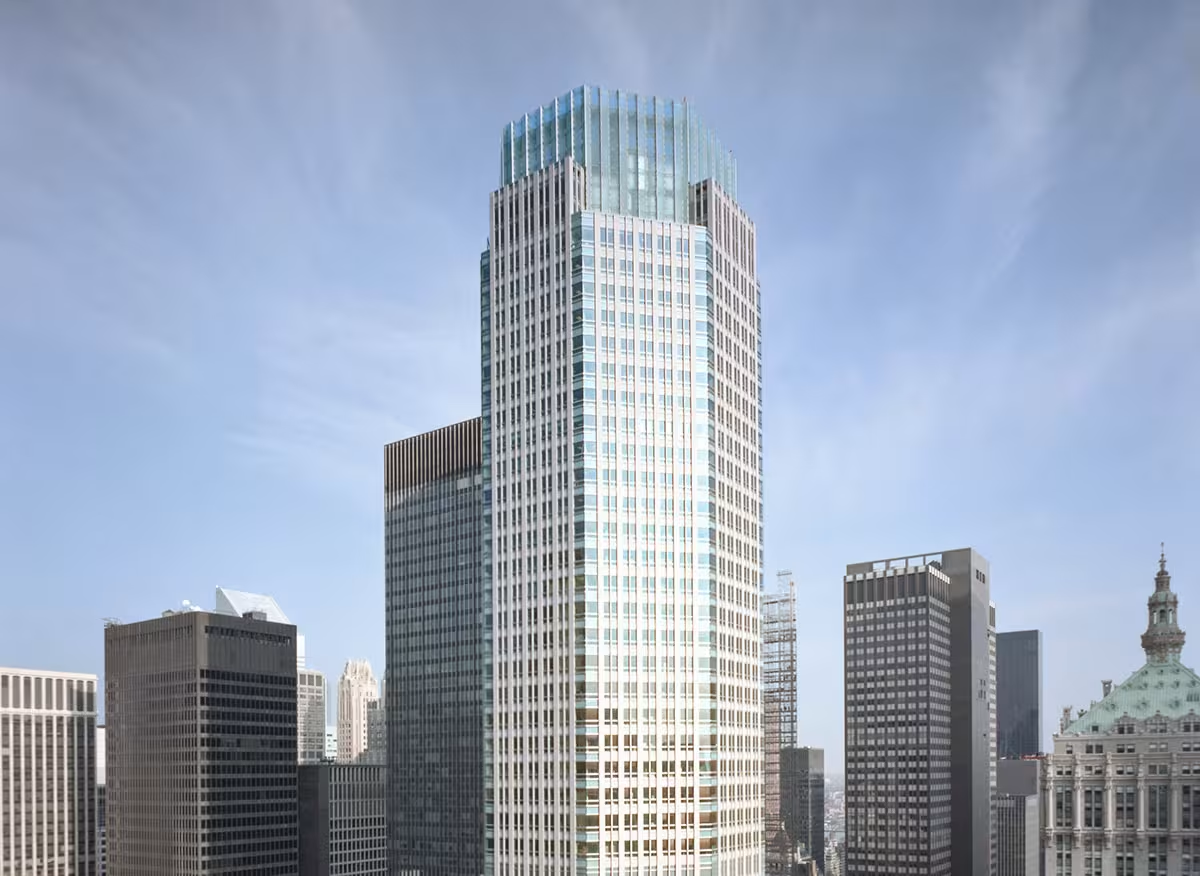7 World Trade Center vs 383 Madison Avenue Building


Comparing the 7 World Trade Center and the 383 Madison Avenue Building is especially interesting because they share much in common. Both rise in New York, NY both were designed by Skidmore, Owings & Merrill, and they were completed within 5 years of each other.
This overlap gives us a unique opportunity to understand how Skidmore, Owings & Merrill approached different commissions in the same urban context and historical context during a short period.
Height & Size
These two towers present an interesting contrast in their proportions. The 383 Madison Avenue Building rises higher at 755ft (230m), while the 7 World Trade Center reaches 741ft (226m). However, the 7 World Trade Center accommodates more floors with 51 levels above ground, compared to 47 floors in the 383 Madison Avenue Building.
This suggests different approaches to interior space design. The 383 Madison Avenue Building has an average floor-to-floor height of approximately 4.9m, while the 7 World Trade Center has more compact floors averaging around 4.4m each. The taller building's more generous floor heights might indicate grander interior spaces, higher ceilings, or different programmatic requirements.
These different proportions likely reflect the specific needs each building was designed to serve, whether driven by zoning regulations, client requirements, or the intended use of the spaces within. The contrast shows how architects can achieve different spatial experiences even when working with similar overall building scales.
Architectural Style
Both the 7 World Trade Center and the 383 Madison Avenue Building were designed in line with the aesthetic conventions of the Contemporary style.
At the time, this style was at the height of its popularity. So Skidmore, Owings & Merrill followed what was in many ways expected at the time, producing designs that fit comfortably within contemporary architectural norms rather, than breaking with convention.
Uses
Both the 7 World Trade Center and the 383 Madison Avenue Building were designed to serve as commercial towers, and that has remained their main use since their completion, serving similar roles in the urban fabric.
Structure & Facade
Both towers share the same structural solution, a Frame system.
A frame structure uses a grid of columns and beams to carry the building's loads. This frees the walls from structural duties, allowing for flexible floor plans and larger windows.
However, when it comes to the facade, both buildings use different approaches. The 7 World Trade Center uses a Curtain Wall facade, while the 383 Madison Avenue Building uses a Modular facade.
A Curtain Wall facade like the one seen in the 7 World Trade Center uses a lightweight glass curtain wall hung from the structure, while a modular facade like the one seen in the 383 Madison Avenue Building employs prefabricated panels, often mixing solid surfaces with smaller windows.
| 7 World Trade Center | 383 Madison Avenue Building | |
|---|---|---|
| Skidmore, Owings & Merrill | Architect | Skidmore, Owings & Merrill |
| 2002 | Construction Started | 1999 |
| 2006 | Year Completed | 2001 |
| Contemporary | Architectural Style | Contemporary |
| Commercial | Current Use | Commercial |
| 51 | Floors Above Ground | 47 |
| 226 m | Height (m) | 230 m |
| 156181 | Built-up Area (m²) | 110000 |
| 29 | Number of Elevators | 30 |
| Frame | Structure Type | Frame |
| Steel | Vertical Structure Material | Steel |
| Poured Concrete Over Metal Decking | Horizontal Structure Material | Poured Concrete Over Metal Decking |
| No | Facade Structural? | No |
| Glass | Main Facade Material | Granite, Glass |
| Tishman Construction | Main Contractor | Turner Construction Company |
| Silverstein Properties | Developer | Gerald D Hines Interests |
| OTIS Elevators | Elevator Company | OTIS Elevator Company |
| Jaros Baum & Bolles | MEP Engineer | Jaros Baum & Bolles |
| WSP Cantor Seinuk | Structural Engineer | WSP Cantor Seinuk |
| NY | State | NY |
| New York | City | New York |
| 250 Greenwich Street | Address | 383 Madison Avenue |